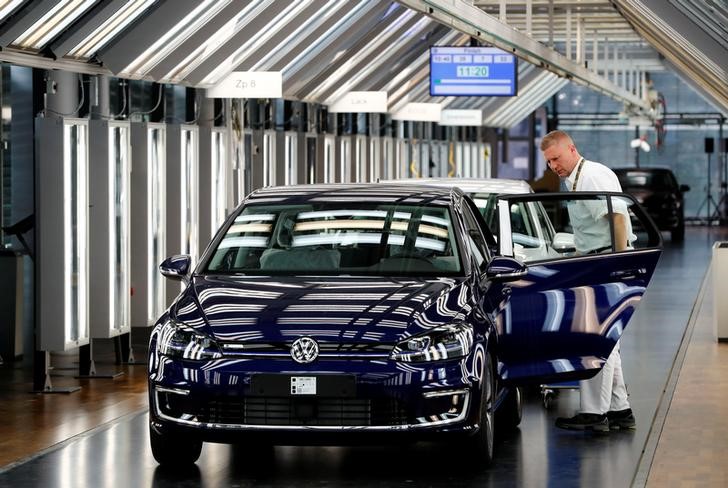This post was originally published on this site
https://i-invdn-com.akamaized.net/news/LYNXNPEE2F0WB_M.jpg
Investing.com — Germany’s stock market is selling the fact of the country’s second big stimulus package, having bought the rumor aggressively earlier.
By 5:15 AM ET (0915 GMT), the DAX was down 0.7%, but still well above the 12,000 mark that it reclaimed for the first time since March earlier in the week. The benchmark Stoxx 600 was down 0.6%, consolidating ahead of the European Central Bank’s meeting.
The package – worth 130 billion euros over the next two years – was as noteworthy for what was missing as for what was actually included: in contrast to the big fiscal packages of 2009, there was almost no direct aid to the auto sector, while the overwhelming bulk of the package went to support lower earners and families, as well as the municipalities whose public services they depend on.
There was no wholesale scrappage scheme to incentivize purchases of new cars. Such support for the makers of mainly luxury cars at a time of unparalleled economic collapse was too politically toxic. But Berlin did increase the amount of federal subsidies for buying pure electric vehicles, and provided another 2.5 billion to expand the country’s charging network.
This is the legacy specifically of the diesel emissions scandal, where Volkswagen and, to a lesser extent, Daimler (OTC:DDAIF) and BMW for years sold cars whose actual emissions of harmful exhaust fumes far exceeded the makers’ claims, contributing to pollution crisis that had already shortened over half a million European lives by 2016, when the scale of the cheating became clear.
Daimler (DE:DAIGn) stock was down 2.8% by mid-morning in Frankfurt, while BMW (DE:BMWG) stock was down 1.7% and Volkswagen (DE:VOWG_p) stock was down 0.9%. VW outperformed because it is arguably in the best position to profit from the new subsidies for electric cars, which will apply only to models with prices up to 40,000 euros ($45,000). One point of note is that the local price of Tesla’s (NASDAQ:TSLA) Model 3 is also currently above that ceiling, which will help ensure that the big three’s most potent competitor doesn’t get the lion’s share of the goodies – unless Tesla cuts its prices.
The industry should profit a little from the temporary cut in Value Added Tax to 16% from 19% for the rest of the year, but that, too, is a measure that will serve more to relieve the stress on smaller businesses, allowing them to pad their margins a bit and to work with less working capital.
In all, though, it’s a package for consumers rather than producers, which is why the DAX seems so underwhelmed – there are, after all, precious few stocks in the DAX that depend on the German consumer. Nivea-maker Beiersdorf ‘s (DE:BEIG) stock was a notable outperformer, rising 1.1%, while consumer goods group Henkel (DE:HNKG_p) and fashion retailer Zalando (DE:ZALG) also kept their losses to a modest 0.1%.

